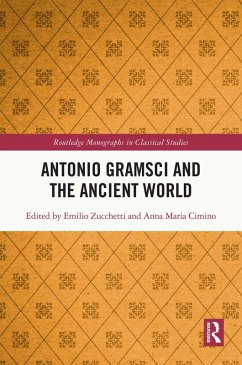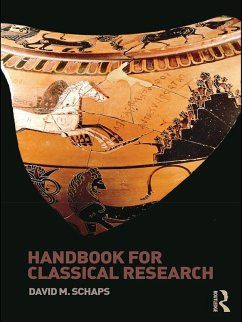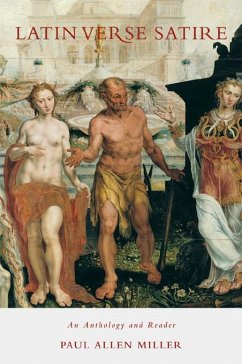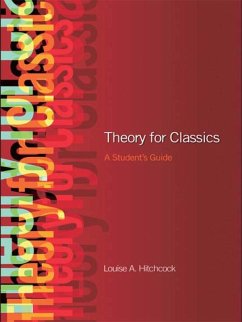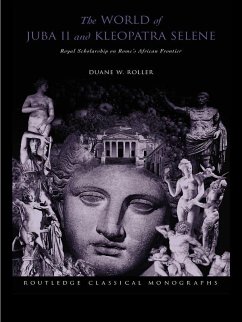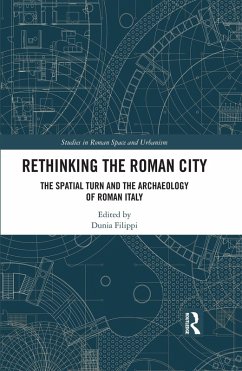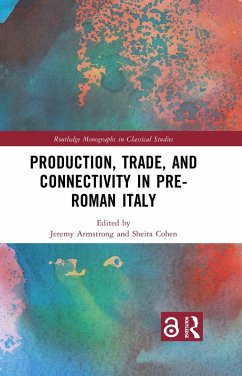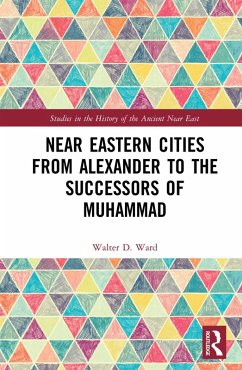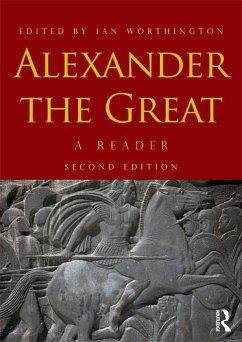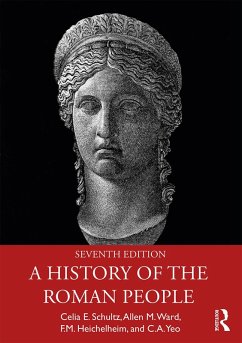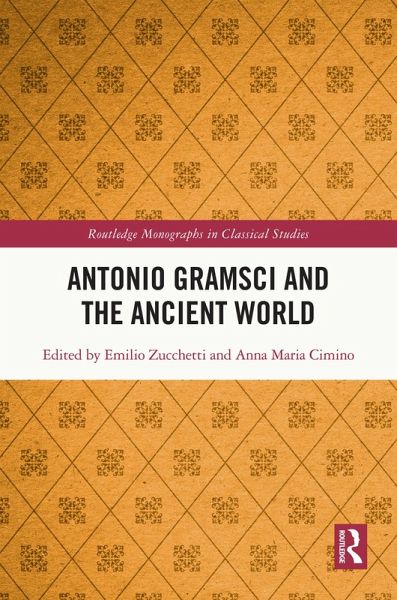
Antonio Gramsci and the Ancient World (eBook, PDF)
Versandkostenfrei!
Sofort per Download lieferbar
39,95 €
inkl. MwSt.
Weitere Ausgaben:

PAYBACK Punkte
20 °P sammeln!
Antonio Gramsci and the Ancient World explores the relationship between the work of the Italian Marxist thinker Antonio Gramsci and the study of classical antiquity.The collection of essays engages with Greek and Roman history, literature, society, and culture, offering a range of perspectives and approaches building on Gramsci's theoretical insights, especially from his Prison Notebooks. The volume investigates both Gramsci's understanding and reception of the ancient world, including his use of ancient sources and modern historiography, and the viability of applying some of his key theoretic...
Antonio Gramsci and the Ancient World explores the relationship between the work of the Italian Marxist thinker Antonio Gramsci and the study of classical antiquity.
The collection of essays engages with Greek and Roman history, literature, society, and culture, offering a range of perspectives and approaches building on Gramsci's theoretical insights, especially from his Prison Notebooks. The volume investigates both Gramsci's understanding and reception of the ancient world, including his use of ancient sources and modern historiography, and the viability of applying some of his key theoretical insights to the study of Greek and Roman history and literature. The chapters deal with the ideas of hegemony, passive revolution, Caesarism, and the role of intellectuals in society, offering a complex and diverse exploration of this intersection.
With its fascinating mixture of topics, this volume will be of great interest to students and scholars of classics, ancient history, classical reception studies, Marxism and history, and those studying Antonio Gramsci's works in particular.
The collection of essays engages with Greek and Roman history, literature, society, and culture, offering a range of perspectives and approaches building on Gramsci's theoretical insights, especially from his Prison Notebooks. The volume investigates both Gramsci's understanding and reception of the ancient world, including his use of ancient sources and modern historiography, and the viability of applying some of his key theoretical insights to the study of Greek and Roman history and literature. The chapters deal with the ideas of hegemony, passive revolution, Caesarism, and the role of intellectuals in society, offering a complex and diverse exploration of this intersection.
With its fascinating mixture of topics, this volume will be of great interest to students and scholars of classics, ancient history, classical reception studies, Marxism and history, and those studying Antonio Gramsci's works in particular.
Dieser Download kann aus rechtlichen Gründen nur mit Rechnungsadresse in A, B, BG, CY, CZ, D, DK, EW, E, FIN, F, GR, HR, H, IRL, I, LT, L, LR, M, NL, PL, P, R, S, SLO, SK ausgeliefert werden.




